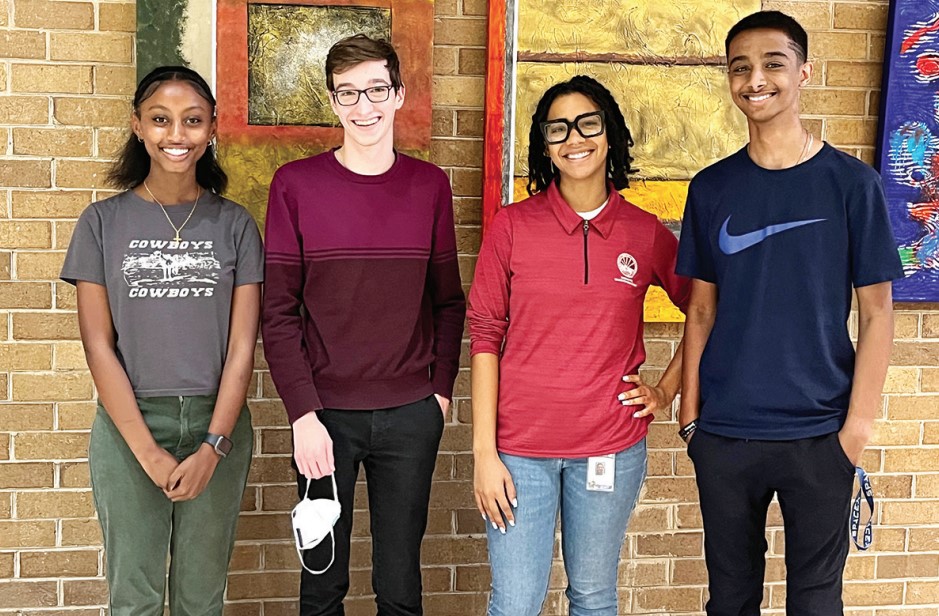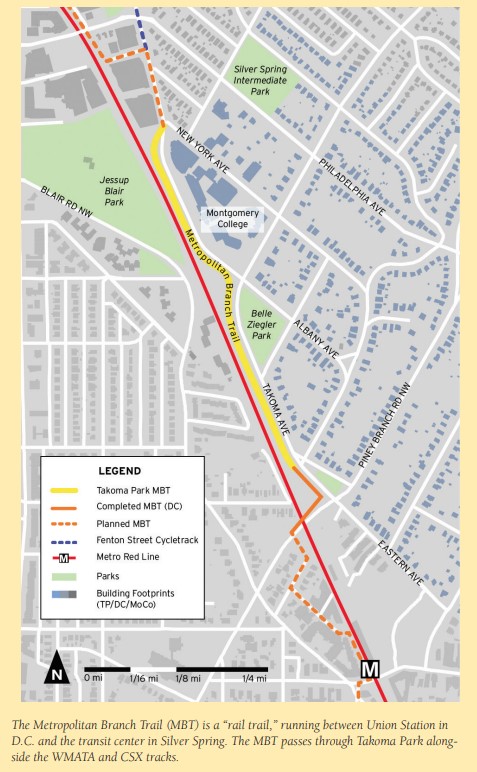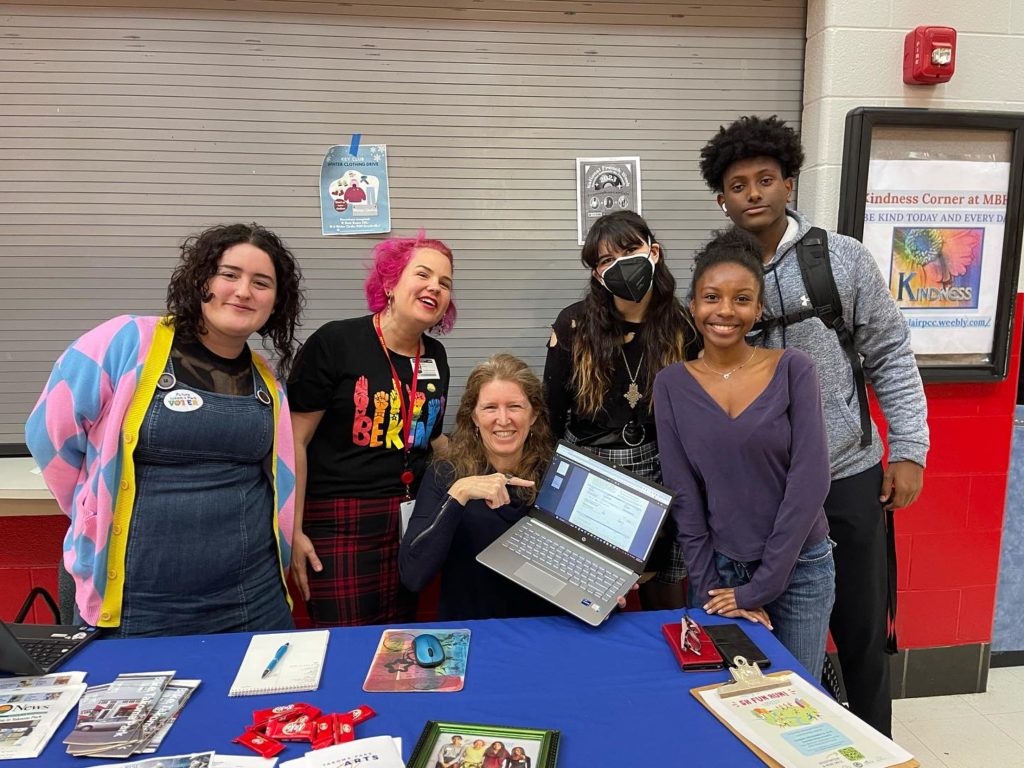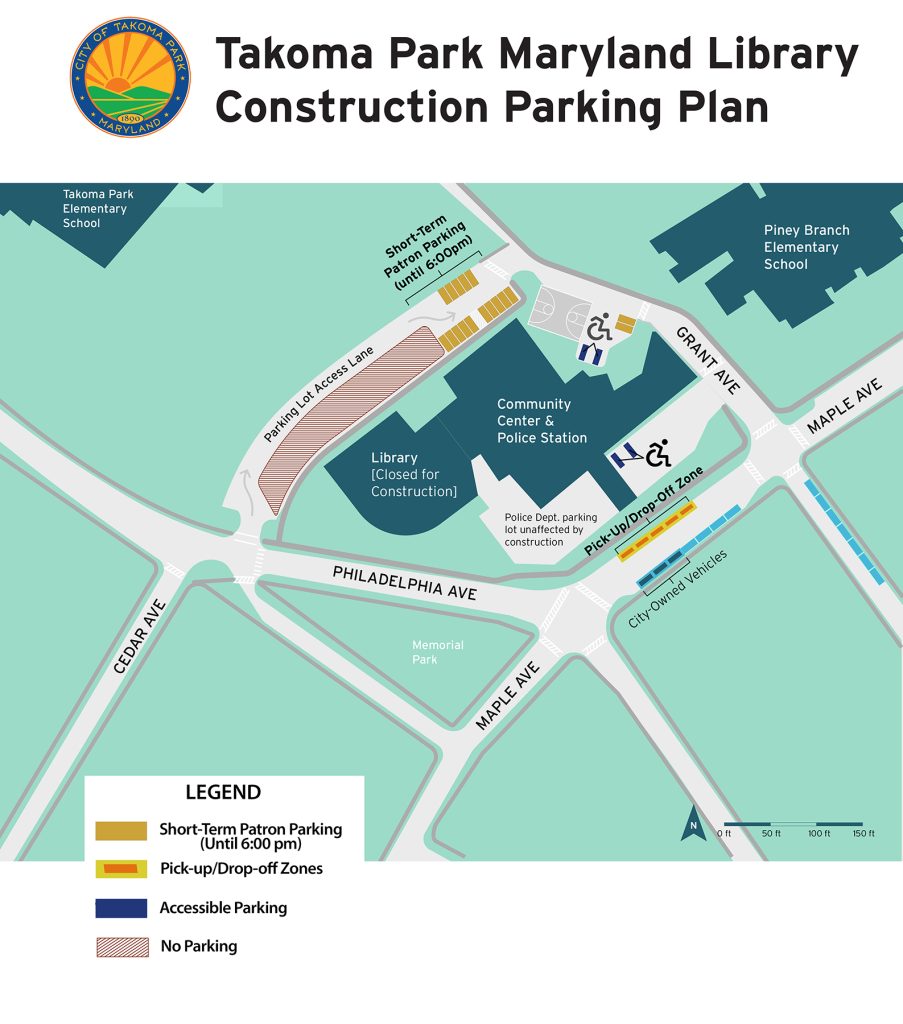On November 29, the City Council unanimously adopted the Takoma Park Public Space Management Plan. Five years in the making, the plan lays out a comprehensive framework for how to manage the public spaces around the City, including parks, plazas, streeteries, sidewalks, roadways, and all the associated amenities.
The Plan presents 37 recommendations for adjustments to City policies, practices, and programs that would serve to fill existing policy gaps, improve equitable outcomes, and create more efficient, comprehensive management of the City’s public spaces. Below is a sampling of the recommendations that City staff are eager to begin working on:
Utilize the Project Evaluation Scorecard to inform priorities for project review and approval. This tool uses a comprehensive set of criteria to evaluate new capital infrastructure projects. Each project, upon initiation, would receive a score based on the criteria. The score, accompanied by a justification narrative to explain the rationale would be used by staff to help prioritize projects, with special attention toward racial equity, environmental sustainability, and safety.
Continue to utilize the city’s Capital Improvement Program to close public space gaps and address priority safety and accessibility concerns. Aided by the Project Evaluation Scorecard, City staff are excited to expand opportunities to address gaps in access to local parks, accessible sidewalks, flood risk areas, and more!
Review existing resident infrastructure request processes through an equity lens, and consolidate them for clarity, ease of use, and equitable allocation of resources. The existing processes for residents to request new traffic calming measures (such as speed humps and intersection narrowing) and new sidewalks are confusing to understand. And they tend to favor efforts by well-organized resident groups, in support or opposition, instead of using safety data or concerns for vulnerable groups of people, like children or seniors. A revisited set of policies would offer an opportunity to advance new infrastructure where it’s needed most urgently.
Establish and fund a need-based playground and park equipment evaluation process and replacement schedule based
on existing conditions and equity. The playgrounds around Takoma Park come in a range of sizes, styles, and needs for updating. The wear and tear on equipment varies widely based on the volume of use, the styles of equipment, and even how shady or sunny it is in a location. The existing timelines for maintenance and updates also does not take into consideration equitable distribution of appropriate playground facilities. This recommendation could yield a more systematic approach to upgrading or replacing playground equipment than currently exists.
Re-evaluate parking meter and parking permit fee rates to more closely align with the rates and policies of neighboring jurisdictions. Parking is a powerful tool to manage traffic, support local businesses, and encourage drivers to park in some areas and not others. However, the pricing and practice of many of the City’s parking management strategies have not been updated in over a decade. A re-evaluation would offer the City a chance to look
at what’s working well and what needs to be updated.
Implement more green stormwater practices in public spaces. The Department of Public Works is already undertaking a Stormwater Resiliency Study to identify new opportunities to mitigate flooding in vulnerable areas around the City. Staff are eager to take those recommendations and identify additional funding and strategies to incorporate stormwater management infrastructure that nourishes the environment in addition to mitigating flood impacts.
To learn more about the newly adopted Public Space Management Plan, visit the City’s project page.
Read the full January Newsletter on the City of Takoma Park Newsletter webpage.




